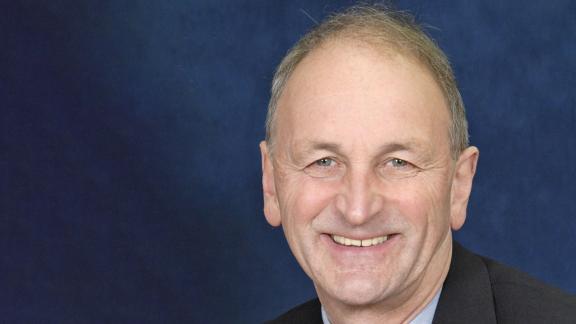Shedding light on improvement at scale

Innovation and improvement are alive and well across the NHS in England. This is one of the main messages of my new report commissioned by the NHS Confederation, the Health Foundation and the Q community.
The report summarises the experience of eight areas where integrated care systems (ICSs) are working to become ‘self-improving’ systems. All ICSs have set ambitious aims to improve population health as well as the delivery of care. While it is early days, every system provided case studies of progress in bringing about improvement at scale.
Taking a closer look
An example is North East and North Cumbria, where high standards of care delivery co-exist with poor health and wide inequalities in health outcomes. Sam Allen, chief executive of the integrated care board (ICB), is working with colleagues to draw on all available assets to address the wider determinants of health in one of the largest and most complex systems in the country.
A different example is West Yorkshire where an alliance of acute trusts has been working to strengthen the delivery of hospital services. The collaborative’s work includes elective recovery and the future of fragile specialties and there is strong alignment with the ICB. Five place-based partnerships are working to integrate care for the populations they serve, with local authorities closely involved.
In Dorset data is used by public health teams to develop actionable insights for improvement
Across the Pennines, Lancashire and South Cumbria is starting to tackle health inequalities in neighbourhoods. Andy Knox, local GP and associate medical director for the ICB, is leading this work with primary care network leaders. The Population Health and Health Equity Leadership Academy is building capabilities for improvement among the partners involved as part of the national CORE20PLUS5 programme.
Reducing inequalities is also a core aim in Dorset through collaboration between the NHS, local authorities and the voluntary and community sector. ICB chief executive, Patricia Miller, emphasises that improvement is underpinned by the use of data about population health, drawn from Dorset intelligence and insight service down to the small area level. Data is used by public health teams to develop actionable insights for improvement, reflecting the needs of different areas.
There are parallels with Thames Valley and Surrey’s shared care record programme – a collaboration between Frimley Health and Care, Buckinghamshire, Oxfordshire and Berkshire, and Surrey Heartlands. Data from the shared care record is used to understand variations among general practices, for example in the management of people with high blood pressure, and to agree interventions for reducing them. Programme director, Jane Hogg, emphasises the value of supporting staff to lead improvements.
Gloucestershire is working on population health, cancer care and community-based clinics for COVID-19 patients who required intensive and high-dependency care. Its work won the patient-centred care award of the intensive care society. The Warm Home prescription project offers financial support to people with chronic conditions and has helped people remain independent and reduced pressure on acute hospitals.
Learning and improvement communities
These examples and others in my report show how system leaders have been resourceful in drawing on the legacies they inherited to deliver their ambitions. They have done so by establishing learning and improvement communities of staff from different organisations and sharing expertise with partners who may have lacked capabilities in the past. System leaders describe themselves as facilitators and convenors of improvement ‘going with the grain’ of what already exists and not seeking to do work better done by others.
Enabling change
All systems report that releasing the time of staff to lead improvement has been difficult in the context of staff shortages, operational pressures and industrial action. There are also concerns that top-down performance management will hinder the development of bottom-up improvement and the emergence of cultures based on commitment, not compliance. To avoid this happening, a strong message in my report is that NHS England should foster a ‘high-trust, low-bureaucracy’ approach, learning from Canterbury Health Board in New Zealand.
National work should focus on a small number of priorities
National leaders must also demonstrate constancy of purpose as they pursue their aim of the NHS becoming a learning and continuously improving system and be realistic about the time needed to do so. The new National Improvement Board has a vital part to play in this process, working with partners including the NHS Confederation, the Q community, National Voices and the Local Government Association. Resources to build capabilities for improvement must be identified, learning from Healthcare Improvement Scotland and others, and national work should focus on a small number of priorities.
I have been energised and encouraged by the conversations I have had in the last six months with system leaders and improvement experts who have seized the opportunity to make a difference for the populations they serve. All have recognised that the NHS cannot succeed on its own and that the involvement of local authorities, the voluntary and community sector and other partners is essential. They also understand that real change happens in the real work of staff who are at the lifeblood of health and social care.
Prof Sir Chris Ham is co-chair of the NHS Assembly, emeritus professor of health policy and management at the University of Birmingham, and senior visiting fellow at The King’s Fund. Follow him on Twitter/X @profchrisham.
Working in partnership, NHS Confederation, the Health Foundation and the Q community are offering those leading system-focused work to come together as part of a peer learning programme, which opens for applications on 28 November. Together they will be connecting leaders to local improvement ideas and expertise that can help tackle the challenges they are facing.


